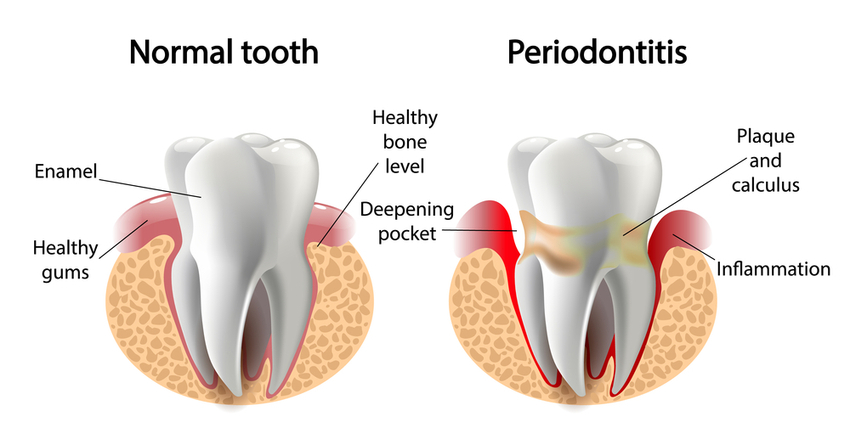5 Things You Need To Know About the Symptoms and Treatment of Gum Disease
Gum disease is far more common than many people think. It can also lead to more serious health problems if left untreated. If you are concerned about gum disease or think that you may be suffering from it, here are five things you need to know about the symptoms and treatment of gum disease.
Know the Symptoms to Look For
Gum disease, or periodontitis, can be hard to spot early if you do not know what to look out for. Softer, redder gums can be an early sign, as is swelling or pain in the gums around the teeth.
Having regular check-ups at the dentist should help you to keep on top of gum disease. If you are nervous about visiting the dentist, try to find a practice that has specific experience in helping patients that are nervous or anxious such as the Cheriton Dental Practice, a dentist in Christchurch with a friendly dental team that works with patients to keep them in tip-top oral health. Finding a similar dental practice near you will help make your visit a far more pleasurable experience.
Gum Disease Can Cause Serious Health Problems
Periodontitis has been linked to several other health problems elsewhere in the body. It is not just your oral health that can be affected by gum disease.
Gum disease has been linked to coronary heart disease, strokes, lung and oesophageal cancer, diabetes, as well as complications during pregnancy. Some researchers believe the inflammation in the gums that gum disease can cause is the link to these other health problems. Further research is ongoing to understand the influence it has on other parts of the body.
Some People are at Higher Risk Than Others
Gum disease can affect anyone, but some people are at a higher risk of experiencing periodontitis than others. This can be because of factors like age, but also because of lifestyle choices like smoking.
People who grind their teeth have an added risk of gum disease. Gum disease can also become a problem as you get older. As risk increases with age, people over the age of 65 should check for symptoms more often.
Gum Disease is Far More Common Than You May Think
Gum disease often stays hidden in its early stages, and this means it is far more common than people realise. You could have gum disease even though you are not showing any symptoms yet.
Swelling or pain in the gums could be an early indication of periodontitis, even if the gums look healthy and are firm. Remember, bleeding gums are a symptom of an existing infection, do not wait to tackle gum disease if you feel pain in the gums or notice your gums receding.
Gum Disease is Easy to Treat and Prevent
Though it can lead to some serious and chronic illnesses, gum disease is easy to treat and simple to prevent.
The most important preventative measure is having a good, regular oral health care routine. Brushing your teeth in the morning and before bed is the most effective way to prevent gum disease. You should also floss every day if you can and use an antibacterial mouthwash.
Looking after your mouth helps you to look after the rest of your body. Check your gums today and book yourself a check-up to stay on top of periodontitis.

